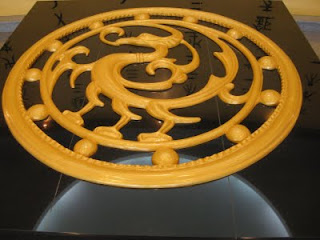 Professor Cho has joined UBE as a visiting professor and yesterday he delighted students here with a lecture on "Creative Leadership".
Professor Cho has joined UBE as a visiting professor and yesterday he delighted students here with a lecture on "Creative Leadership".Professor Cho has a Ph.D. degree in Mechanical Engineering but his passion is for teaching and mentoring students and for helping others to become better teachers through the use of innovation and creativity in the university classroom.
Before returning to South Korea four years ago, Professor Cho was professor at Michigan Tech University. He has received many distinguished awards from his profession, from the university, and from the Korean National Academy of Engineers.
This year, the Ministry of Education appointed Profesor Cho as Director of the Busan K-12 Counseling Support Center, a comprehensive counseling facility for K-12 students.
Professor Cho's wife Christina Sung Aie Choi, a psychotherapist, is founder and director of the Family Therapy Center in Seoul. She does volunteer work in orphanages in the two biggest cities in South Korea, Seoul and Busan. Together Professors Cho and Choi have co-authored four books, including "Seven Reasons for Korean Revival: Educational Reform".









